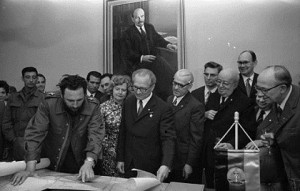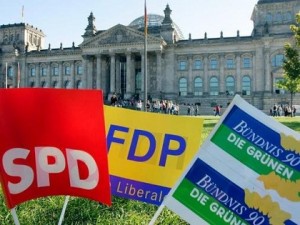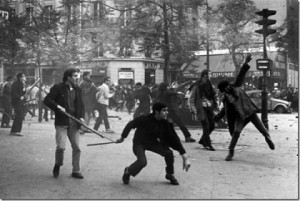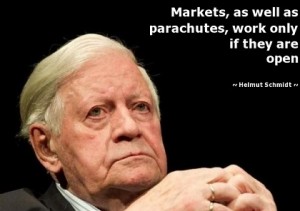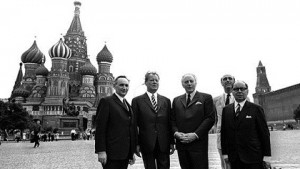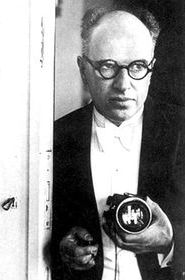Ulbricht's successor in East Germany was Erich Honecker. Born in 1913 in Saarland, Honecker joined the Communist Party of Germany (Kommunistische Partei Deutschlands--KPD) in 1929. As a full-time functionary of the party, he continued his work in the underground movement after Hitler came to power in 1933 and until arrested by the Nazis in 1935. … [Read more...]
The Christian Democratic/Christian Socialist-Free Democratic Coalition, 1983-
The SPD-FDP coalition formed in 1969 became increasingly strained in the early 1980s, leading to concerns among the FDP leadership about its stability. The SPD had become deeply divided because many of its members found Chancellor Schmidt's policies too conservative. Particularly troublesome was his position on NATO's Dual-Track Decision, which … [Read more...]
The Greens in Germany
In the aftermath of the oil crisis of 1973, regional political groups concerned with environmental issues began to put up candidates in communal and regional elections. In 1980 a number of ecological groups, alternative action movements, and various women's rights organizations banded together on the national level to form the political party that … [Read more...]
The Student Movement and Terrorism in Germany
In addition to troubling economic and environmental problems for which no easy solutions were available, West Germany and its politicians had to contend with two new sources of social unrest: the student movement of the late 1960s and early 1970s, and left-wing terrorism, which originated in the late 1960s, but which had its greatest impact in the … [Read more...]
Helmut Schmidt
Following Brandt's resignation in May 1974, the SPD-FDP coalition partners unanimously agreed that Minister of Finance Helmut Schmidt should head the new government. At fifty-five, Helmut Schmidt became the youngest chancellor of the FRG. Born in Hamburg in 1918, he served as an officer in World War II. After the war, he joined the SPD and served … [Read more...]
Ostpolitik in Germany
West Germany's relations with the East European states had virtually stagnated since the establishment of the Hallstein Doctrine in the mid-1950s. In 1970, in an attempt to lessen tensions in Europe, Brandt and his FDP minister for foreign affairs, Walter Scheel, agreed to negotiate with the communist bloc. For the first time since 1948, the top … [Read more...]
The Social Democratic-Free Democratic Coalition, 1969-82 and Willy Brandt
In the West German Bundestag elections of September 1969, the CDU/CSU remained the largest political group, holding eighteen more seats than the SPD. With the help of the FDP, which had earlier supported the candidacy of the SPD minister of justice Gustav Heinemann for the federal presidency, Willy Brandt was able to form an SPD-FDP coalition … [Read more...]
April 30 in German History
April 30 Walpurgis Night, or Witches' Sabbath--a legendary event on the Brocken Mountain in the Harz chain, made famous in Goethe's Faust. April 30, 1790 Death of Samuel Heinicke in Leipzig, Germany. Heinicke became interested in the problems of the deaf after reading Surdus loquens, a book in which it was described how a Swiss … [Read more...]
April 29 in German History
April 29, 1767 Birth of Karl Philipp Fürst von Wrede in Heidelberg, Germany. Karl was a German general who, however, formed an alliance with Napoleon until 1813 (the year of the battle of Leipzig in which Napoleon was first defeated in battle). He then switched sides and joined the coalition of nations against France. April 29, … [Read more...]
April 28 in German History
April 28, 1849 On this date the Prussian king Friedrich Wilhelm rejected the title of "Kaiser" as offered to him by the Frankfurt Parliament a month before. He also rejected the new constitution of the parliament, finding it to be subversive. April 28, 1853 Death of Ludwig Tieck in Berlin, a leading writer and theorist of the romantic … [Read more...]
- « Previous Page
- 1
- …
- 100
- 101
- 102
- 103
- 104
- …
- 139
- Next Page »
